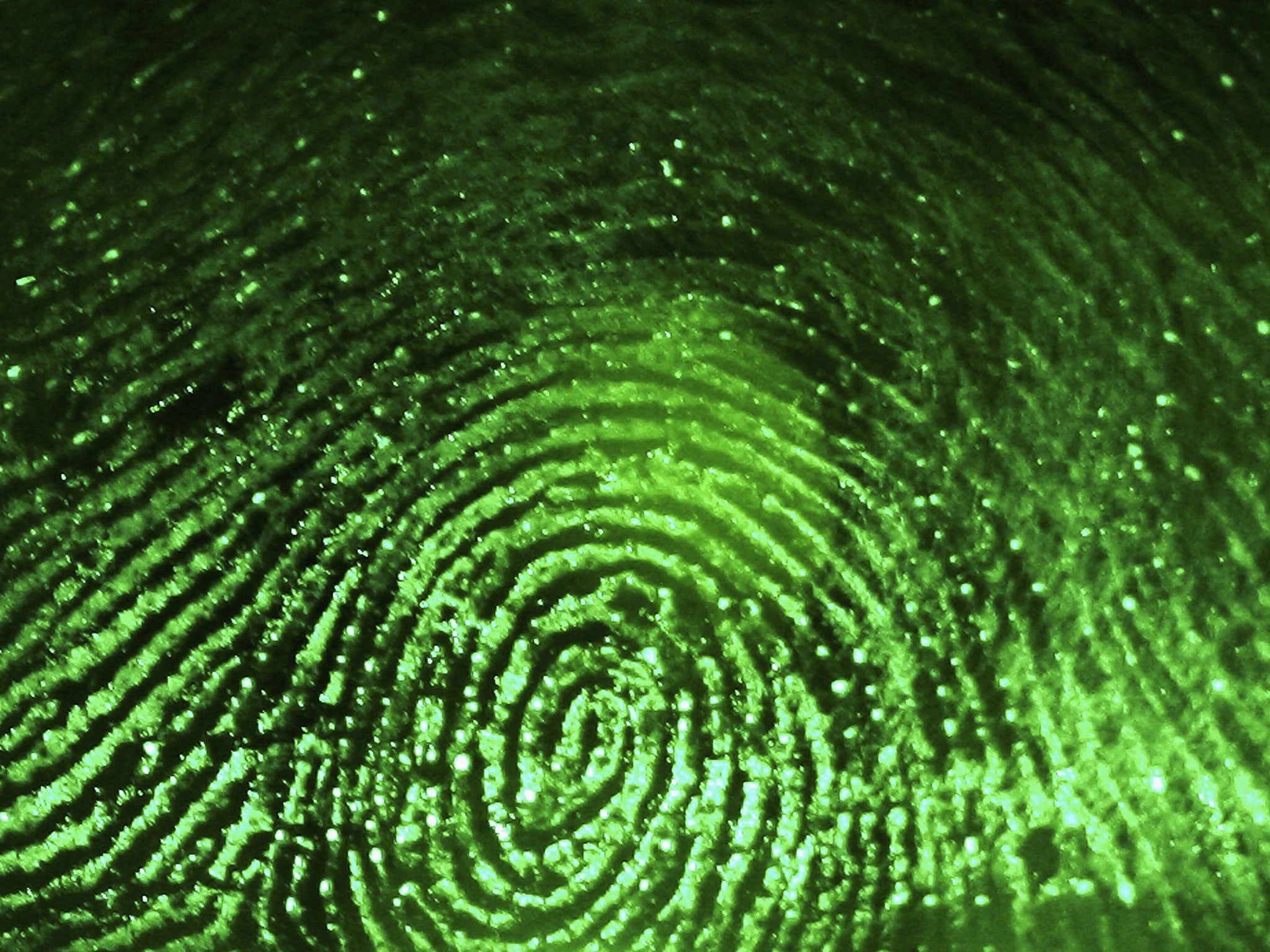Fingerprints can show cocaine use history, could lead to improved drug testing
Scientists hope that the new test could be quicker, less invasive and harder to fake than traditional blood and saliva ones

Your support helps us to tell the story
From reproductive rights to climate change to Big Tech, The Independent is on the ground when the story is developing. Whether it's investigating the financials of Elon Musk's pro-Trump PAC or producing our latest documentary, 'The A Word', which shines a light on the American women fighting for reproductive rights, we know how important it is to parse out the facts from the messaging.
At such a critical moment in US history, we need reporters on the ground. Your donation allows us to keep sending journalists to speak to both sides of the story.
The Independent is trusted by Americans across the entire political spectrum. And unlike many other quality news outlets, we choose not to lock Americans out of our reporting and analysis with paywalls. We believe quality journalism should be available to everyone, paid for by those who can afford it.
Your support makes all the difference.Fingerprints carry a marker of cocaine use, scientists have claimed, in a discovery that they hope will create a new and much easier form of drug testing.
Chemical indicators that come out of the breakdown of the drug are carried on fingerprints, researchers at the University of Surrey say. And by collecting and analysing those fingerprints, they could find out whether someone has recently ingested cocaine much quicker and without the need for extracting blood or any other fluid.
Researchers have long been looking to overcome the problems with traditional blood testing — which takes much longer, and requires a full team to extract the blood, which can be invasive for patients. But the new finding solves many of those problems while avoiding the inaccuracy that plagued other solutions.
Taking the test by giving a fingerprint also means that the identity of the person will be wrapped up with the sample. That would stop people faking the test — which is possible now, since people can take a fluid sample from someone else and present it as their own.
To use the test, researchers shoot a mix of methanol and water at a fingerprint sample. It looks for two chemicals — benzoylecgonine and methylecgonine — which are released as the body breaks down cocaine, and then exit the body as sweat.
Scientists use a mass spectrometer to analyse the sample. That can detect chemicals by looking at their atomic size, and so see whether the two important things are on people’s hands.
At the moment, that makes the kit expensive, since the mass spectrometers that are being used cost hundreds of thousands of pounds. But the same technology could eventually be incorporated into easy and small testing kits for anywhere that people need them, including courts, prisons and even in workplaces.
Join our commenting forum
Join thought-provoking conversations, follow other Independent readers and see their replies
Comments